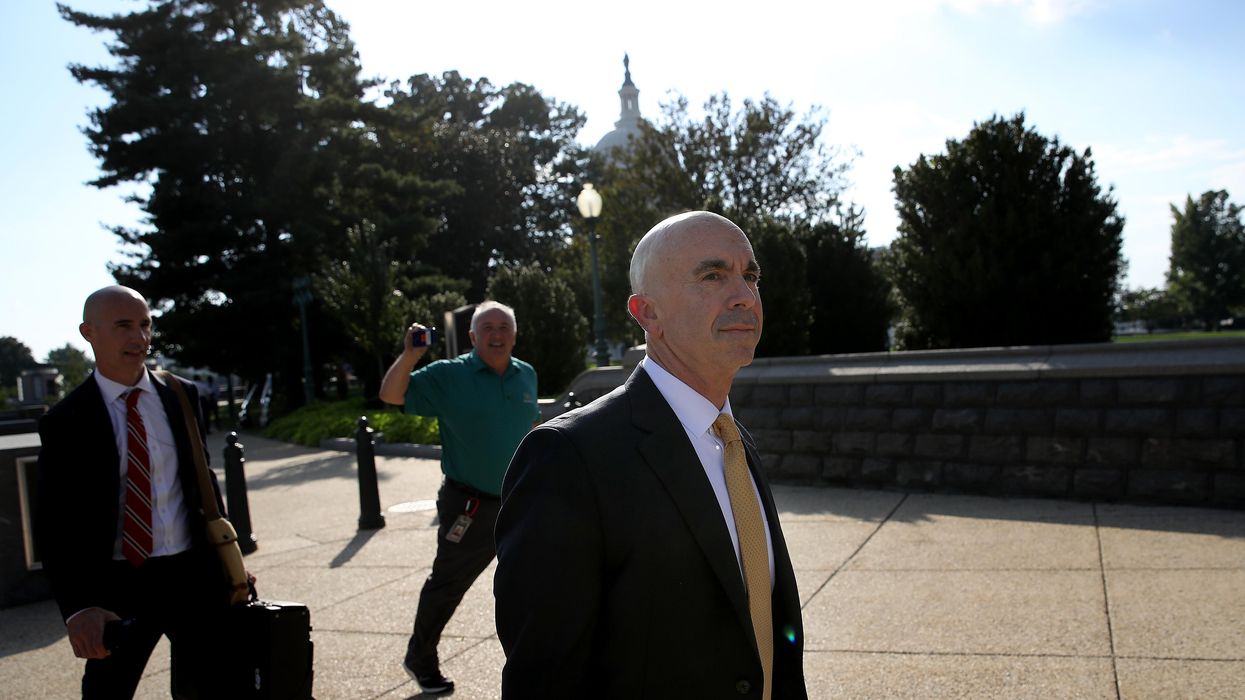Hempowicz is director of public policy and Wasser is a policy attorney at the Project On Government Oversight, a nonpartisan group that investigates corruption, misconduct and conflicts of interest in the federal government.
This is the last in a series advocating for parts of legislation soon to be proposed in the House, dubbed the Protecting Our Democracy Act, designed to improve democracy's checks and balances by curbing presidential power.
Last year, while a global pandemic and the accompanying economic uncertainty ravaged the country, political corruption was ranked the second most important issue among voters. This wasn't an anomaly — the American public has ranked "political corruption" and "corrupt government officials" as one of their leading fears for the past five years.
It's clear we must strengthen the integrity of our government institutions so the public gains confidence that corrupt actors will be exposed and held accountable.
Greater protections for whistleblowers and independent government watchdogs will go a long way toward rooting out this corruption the public is so concerned about.
Whistleblowers support the system of checks and balances in our government by speaking up and reporting waste, fraud, illegalities or abuses of power that might otherwise go unnoticed and unaddressed. But they do so at great personal and professional risk.
In many instances, whistleblowers themselves become the subject of retaliatory internal or criminal investigations, monopolizing the truth-teller's resources. These investigations, as well as other forms of retaliation, have a chilling effect, preventing others from coming forward to expose wrongdoing and lending credence to fears that corrupt government officials are allowed to operate with impunity. Because of this, better protections are necessary to ensure whistleblowers are able to make their disclosures and combat corruption and abuse of power within our government.
Currently, federal whistleblowers are in a no-win situation. Most cannot access federal courts to enforce their protections. And the agency that's supposed to help protect them, the Merit Systems Protection Board, has not had any of its seats filled for more than two years — creating a backlog of more than 3,000 cases.
Further, the culture surrounding whistleblowers has created an almost reflexive response to shoot the messenger (through whistleblower retaliation) for reporting the wrongdoing rather than addressing the actual, systemic issues in the government that the whistleblower is disclosing.
To this end, the Protecting Our Democracy Act would strengthen whistleblower protections in many ways. Most importantly, it would allow whistleblowers to enforce their protections in a court in front of a jury of their peers — instead of the MSPB, a quasi-judicial agency within the executive branch.
The bill also would limit opportunities for government officials to disclose a whistleblower's identity. It would make it illegal to retaliate against whistleblowers by opening meritless investigations into their conduct. It would require administrative judges and employees who work with whistleblowers to undergo special training. And it would create a secure mechanism for intelligence community whistleblowers to provide information directly to Congress.
Strengthening whistleblower protections by enacting this legislation can help restore the check on corruption that is desperately needed within the federal government.
Inspectors general, the independent government watchdogs that investigate federal agencies and report their findings to Congress, also need stronger protections now more than ever.
The nature of their jobs is to provide independent oversight without political interference or retaliation, a fundamental difference from other political appointees nominated by the president and confirmed by the Senate. However, under current law, a president can remove IGs for any reason — as evidenced by the removals and replacements that Donald Trump carried out in response to oversight of his administration.
While the law prohibits agency heads from interfering in an IG investigation, this limitless removal authority allows any president or agency head to improperly block any effort that an IG undertakes to conduct independent oversight, by simply removing the watchdog rather than interfering in a politically sensitive inquiry. To conduct robust, apolitical oversight, IGs need independence both from the agency they are overseeing and from the president.
Congress responded to the rash of seemingly politically motivated firings of IGs during Trump's final year in office with the introduction of a handful of bills to protect them from removal as retaliation. One such proposal, which is now part of the Protecting Our Democracy Act, would require the president to have "good cause" for removal. The administration would have to provide Congress proof of the cause, require inspector general offices to report to Congress on any investigations underway at the time of a removal (to ensure those could move forward independently), and enhance congressional reporting requirements around IG vacancies. These fixes would bolster the independence of inspectors general and ensure they remain free from retaliation while providing the American taxpayers with independent oversight.
Stronger protections for whistleblowers and inspectors general would advance the bipartisan ideal that a functioning democracy relies on robust checks and balances. Whistleblowers should be able to make disclosures free from retaliation, just as IGs should be able to perform their jobs with integrity without facing political interference. These reforms would ensure that accountability and transparency remain the driving force in restoring key elements of our democracy.



















Trump & Hegseth gave Mark Kelly a huge 2028 gift